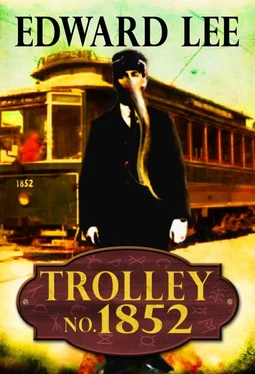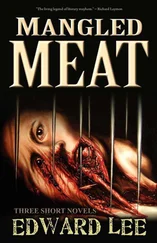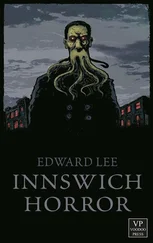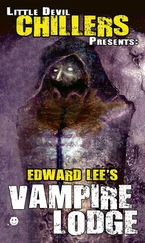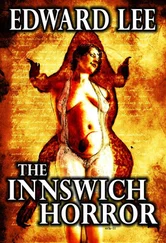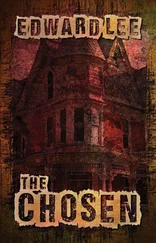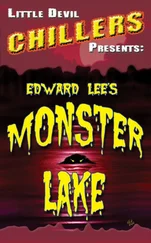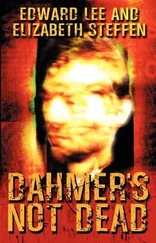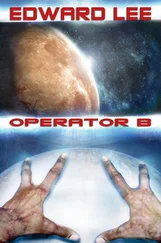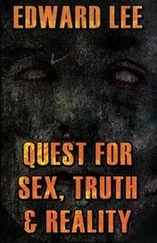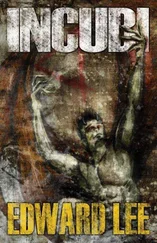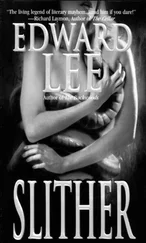Edward Lee - Trolley No. 1852
Здесь есть возможность читать онлайн «Edward Lee - Trolley No. 1852» весь текст электронной книги совершенно бесплатно (целиком полную версию без сокращений). В некоторых случаях можно слушать аудио, скачать через торрент в формате fb2 и присутствует краткое содержание. Жанр: Старинная литература, на английском языке. Описание произведения, (предисловие) а так же отзывы посетителей доступны на портале библиотеки ЛибКат.
- Название:Trolley No. 1852
- Автор:
- Жанр:
- Год:неизвестен
- ISBN:нет данных
- Рейтинг книги:3 / 5. Голосов: 1
-
Избранное:Добавить в избранное
- Отзывы:
-
Ваша оценка:
- 60
- 1
- 2
- 3
- 4
- 5
Trolley No. 1852: краткое содержание, описание и аннотация
Предлагаем к чтению аннотацию, описание, краткое содержание или предисловие (зависит от того, что написал сам автор книги «Trolley No. 1852»). Если вы не нашли необходимую информацию о книге — напишите в комментариях, мы постараемся отыскать её.
Trolley No. 1852 — читать онлайн бесплатно полную книгу (весь текст) целиком
Ниже представлен текст книги, разбитый по страницам. Система сохранения места последней прочитанной страницы, позволяет с удобством читать онлайн бесплатно книгу «Trolley No. 1852», без необходимости каждый раз заново искать на чём Вы остановились. Поставьте закладку, и сможете в любой момент перейти на страницу, на которой закончили чтение.
Интервал:
Закладка:
Too often I mused that if the stone-faced sergeant were abstractly correct, and that my faultless sister had reached the psychic saturation-point and succumbed to self-annihilation, I too might well soon follow.
Days of useless searches bled into smoke-sullied gloaming, for another night of monotonous labor which after interminable hours would then bleed back into days of more useless searches. I’d ride grim trolleys and wretch-piloted coaches, scouring every passing flinty face and scowling countenance in the dead hope that one would be Selina; walked soles off my very shoes searching still more, only to be rewarded by slipping on a bum’s blood-marbled sputum or being bumped, shoved, and cursed at in a dozen hateful dialects by scores of hateful faces. Even the churches closed their doors to the uncontainable throng… God, indeed. What true god could turn his back on a woman as goodly as my sister and allow her to be sucked up, swallowed, and digested into this irredeemable abyss of stench, cacophony, and illicitness? How could any “Supreme Being” exist so coldly and unconscionably as to relinquish kind and life-praising souls as Selina to this metropolic spittoon of human wretchedness? Where eyes in my beloved and stately Providence shined in hope and kindredship, hither they only glimmered dully in turpitude and greed.
After two long years, then, my spirit was all but done. Evening time closed over me like a casket’s lid, where then I labored in my cubby till my fingers raged in pain, only to know that the coming dawn would bring no surcease. Day after day, the clocks ticked in a semblance to dripping blood, and I felt as though my soul had metamorphosed to the blackest sand, spilling ever away through some morbid existential hourglass that had no bottom.
When I slept I dreamt of the hangman’s noose.
At my place of employ, I took care to befriend no one but instead oversaw the nightly duties of all with a stolid, vigilant face; anything less would be fraternization and, hence, unprofessional. On the same hand, my deflated spirit left me in no desire for comradeship. There was one soul, though, with whom I did feel something of a connexion: the sullen building’s custodian, Robert Erwin. Thirtyish, I’d estimate, a great ox of a man yet amiably demeanoured, Erwin (brief after-work chats and the shared walk to the B-Line trolleys) would most often leave me uplifted via even his most stray comments. Many were the occasions when his simple positivities left me prickly with guilt, for here was a man who never had anything less than a smile to offer, even after having lost his wife to a malignancy, then one daughter to tuberculosis and a second to murderers. “You can be sure, Mr. Phillips,” he regarded me once, “that every day I wake up, and the sun’s still shinin’ and the world’s still turnin’, and I’ve got a job when millions of others don’t— that’s a day to give thanks for. You see, Mr. Phillips, every day is a celebration…” The tenor of his voice left no denying his conviction, while most days I stewed in sentiments opposite, becoming poisoned now by my own misanthropy and self-inflicted gloom. We both lived in the district’s west end—hence our sharing the B-Line. “Truly it’s a great God that can see fit to shine His light on me,” he said once. “You’re a religious man, I take it?” came my dark question but he answered, “Not religious enough, but I don’t s’pose anyone can be, not tainted as we are by Original Sin. All we can do is repent, right? We’re all human bein’s and we’re all sinners. Yet God gives me my job and my beatin’ heart, and you too! So I do my best to give Him my faith.”
Such evangelical spouts I tried to avoid, yet something about his soft-spokeness, still, made me heed the words in spite of my resolute dis belief in his god. How could I, with my righteous sister likely dead?
But conversely… how could he, in all his tumultuous loss?
On the night in question Erwin and I chatted innocuously after-shift as we walked to the trolley-stop. Somewhere unseen an old iron-striker bell tolled four a.m., a plaintive, dismal sound. At this hour, as was usual, the ill-litten streets looked abandoned, and no rabble-rousers or “rummies,” as they were called, were afoot, which always relieved me. A silence that seemed nervous, though, held dominion within the foetid air that hung between the leaning, rust-streaked edifices on either side. It had been a grueling shift, with my company’s transcription quota rising to defray incremental costs. Erwin, likewise, had been passed over for a modest raise, for synonymous reasons. I couldn’t help but poke some implied fun: “Could it be that your god’s light isn’t shining brightly as it once did?”
With a scoff, he replied, “Brighter! Are you kidding? Neither of us, Mr. Phillips, got cause to complain. Did you know that in Russia, they don’t make but a nickel a day?”
I should’ve known! More of his positivity.
“But, you know,” he continued, “I got to admit, maybe I didn’t get that raise ‘cos I’m bein’ punished. God’s way of reminding me who’s boss.”
“Punishment?” I questioned as we stood beneath a bleak town-gas lamp at the stop. “You’re about as free of error as anyone I’ve met.”
The pallored gas-light seemed to drain his ever-optimistic expression. “I can’t be a hypocrite, Mr. Phillips. I’ve done my share’a sinnin’—always been sorry afterward, but still… Been thinkin’ about it lately, to tell ya the truth.”
I laughed aloud on the nighted, trash-strewn street. “Really, now? So if I may ask,” I mocked, “what grand sin have you been contemplating?”
His seriousness, tinged by guilt, did not waver. “Sins of the flesh. What else?”
He must mean either salooning or whore-mongering, two activities I’d never partaken in. But I maintained my good-hearted chastisement. “Succumbing to the desires that your Creator gave you? Surely, Mr. Erwin, your god can’t be so disingenuous as to refuse to forgive that. ”
“Oh, He forgives it—the pastor says so—but only to those worthy of His forgiveness.”
“And how on earth does one gauge worthiness? ”
Suddenly, he looked lost. “I don’t know.”
But his words had me thinking, not his words of forgiveness from sin, but his implications. “So you mean you frequent the speakeasies, Mr. Erwin? The rot-gut some of those places pass off as illicit liquor can make one blind’s what I’ve heard. Only days ago I read of one such den that served up devilish bad rum, and several died. There’s that risk, compounded by the simple risk of being caught by violating the laws of the Eighteenth Amendment. Federal men are all over the city, I hear.”
“Oh, I don’t mean speakeasies, Mr. Phillips,” and then he gulped. “Spirits are a vile polluter of the God-given human body. What I’m talking about… are the Red Houses…”
I nodded while keeping reins on my personal disapproval of such iniquitous havens. Though I recognised immorality when I saw it I was also thoughtful enough to refrain from judgments, and I could even compel myself to overlook Erwin’s obvious hypocrisy: the stalwart Christian but one tainted by a weakness for ladies of the night. Of my own case, I’ll say that so- called sexual congress caused me to harken back to the wise quip of Lord Halifax: “The price is damnable, the pleasure is momentary, and the position is ridiculous,” which bespoke my views as well. I myself had thankfully never suffered from a high state of libidiny but I could hardly condemn others affected by more heightened—and notably normal —states. How was a good man such as Erwin expected to satisfy his natural primordial drives with a wife long dead? At last, I commented, “I must say, I can hardly picture a moral man as yourself frequenting such places.”
Читать дальшеИнтервал:
Закладка:
Похожие книги на «Trolley No. 1852»
Представляем Вашему вниманию похожие книги на «Trolley No. 1852» списком для выбора. Мы отобрали схожую по названию и смыслу литературу в надежде предоставить читателям больше вариантов отыскать новые, интересные, ещё непрочитанные произведения.
Обсуждение, отзывы о книге «Trolley No. 1852» и просто собственные мнения читателей. Оставьте ваши комментарии, напишите, что Вы думаете о произведении, его смысле или главных героях. Укажите что конкретно понравилось, а что нет, и почему Вы так считаете.
